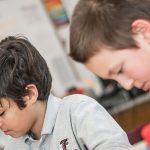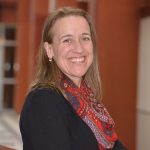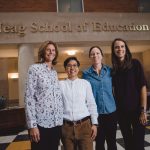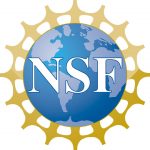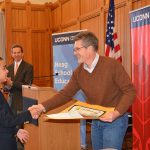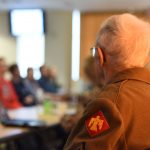Segregation in schools was abolished in 1954 in the Supreme Court’s historical decision in Brown v. Board of Education. But this decree from the court did not magically wipe segregation or racial prejudices and tensions away. There are a variety of models schools around the country used to deal with student behavior problems, and while they have been successful in many cases, these models fail to account for specific issues caused by race-related behavioral problems.
In a collaborative grant from the National Institute of Minority Health and Health Disparities for the University of Connecticut and the University of Alabama, assistant professor of the school psychology program in the UConn Neag School of Education Tamika La Salle and Sara McDaniel, associate professor of psychology at the University of Alabama will work to look at ways to address this gap.
The ability to collaborate and advocate beyond the classroom and across stakeholders, from department chairs to administrators to parents, is a crucial teacher leadership skill, says Michele Back, assistant professor of world languages education at Neag School of Education. The critical shortage of world language teachers, she says, combined with the diminishing number of U.S. students taking world language courses, means that teacher candidates in this content area must be strong advocates for their own profession from the moment they step into the classroom.
Emily Tarconish is a Ph.D. candidate in Neag School’s educational psychology program with a concentration in special education. She is a survivor of a traumatic brain injury (TBI) she endured at the age of 15. With years of hard work and rehabilitation, Tarconish has relearned how to walk, speak, and regain basic life functions. Once she completes her Ph.D., she plans to pursue research focused in part on improving access to higher education for college students with TBIs.
Alumni, students, faculty, and administrators from the Neag School of Education joined education professionals from across Connecticut last week for an evening of networking, followed by a panel discussion, at Hartford’s Spotlight Theatre. It was the fourth annual Educational Leadership Forum.
Scholarships undoubtedly remain an essential source of support for individual students, but in fact they can also set into motion a wealth of other positive outcomes beyond funding an individual’s educational journey. One such student scholarship is the Vivienne Dean Litt Memorial Award — established in memory of the late Vivienne Dean Litt, former assistant director of the University Program for Students with Learning Disabilities (UPLD) at UConn.
Each year, the U.S. Department of State, the Center for Sport, Peace & Society at the University of Tennessee Knoxville, and espnW co-sponsor the Global Sports Mentoring Program’s (GSMP) Empower Women Through Sports Initiative.
The Neag School Department of Educational Leadership’s Laura Burton, Danielle DeRosa, and Jennifer McGarry were selected to serve as mentors to an emerging leader from Vietnam, Tra Giang “Jane” Nguyen.
Two research projects co-led by professors in the Neag School of Education have recently been awarded a total of more than $2.5 million in federal funding, made available through the National Science Foundation (NSF).
Editor’s Note: This month, Teach.com — an educational web resource for information on becoming a teacher — features Neag School alumna Natalie Curran ’11 (ED), ’12 MA in its “8 Questions” series, which showcases teachers who have transitioned their classroom skills into new and exciting careers in, and beyond, the field of education.
Jason Courtmanche ’91 (CLAS), Ph.D. ’06 has been serving in a variety of capacities at the University of Connecticut for 23 years. A lecturer in the University’s English department, an assistant coordinator of the Early College Experience English program, and affiliate faculty in the Neag School’s Department of Curriculum and Instruction, he primarily serves as director of the Connecticut Writing Project (CWP), which immerses Connecticut teachers in an intensive writing program where they grow as writers, learn about teaching writing, and have the opportunity to become published in one of CWP’s literary magazines.
A recent national survey reported that millennials are struggling with their knowledge of the Holocaust. The survey results show that 22 percent of millennials have not heard of, or are not sure if they have heard of the Holocaust, and that 66 percent could not identify Auschwitz.
